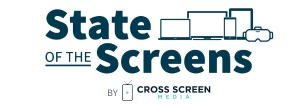Celebrities can be a key piece in Advertisements
|
 |
| The concept of celebrity endorsements took off in earnest when television became the undisputed media potentate in the 50s. From Betty Furness and her dirndls hawking Westinghouse refrigerators to the resonant tones of Verizon pitchman James Earl Jones, high-profile performers have been an effective tool in assuring consumer loyalty and brand identity. |
 |
| Entertainment biggies love doing endorsements. And why not? Commercials take a minimal amount of time to shoot and pay off big time in both the short- and long-term. |
 |
| Celebrity endorsers, as we all know, are frequently utilized by distinguishable operations that spawn instant recognition (see Mr. Jones, above). But their presence is even more critical to smaller or less-well-known enterprises, where they can help generate visibility and prominence for the company and its products. They create an opportunity for the proverbial little guys to become major players in the retail arena. |
 |
| For example, Klegg Electronics, Inc., (OTC: KLGE), a publicly-traded manufacturer and distributor of high quality consumer electronics, has tapped “American Idol” judge and superstar Paula Abdul to introduce its latest innovation – the world’s smallest color display MP3 player. |
 |
| According to Jeffery Goddard, CEO of Tva Media Group, the full-service media production/news placement company that Klegg has selected to shoot Abdul’s promotions, “Using Paula to promote the product gives huge credibility to Klegg, an emerging company. Klegg is seen as a serious contender, an accomplished professional willing to spend the big bucks to get its product out there. At the same time, Paula instills confidence in consumers: she gives prospective customers the feeling that it’s not only safe to buy this product, but it’s also cool to buy what she is pitching.” |
 |
| And, let’s not ignore the identity factor: Paula Abdul becomes synonymous with Klegg Electronics. |
 |
| Revisiting the compensation issue for these notables, it’s naturally up to the celebs’ individual agents/attorneys to broker the best deal for their famous clients. In the past, celebrities usually received a hefty annual fee for spokesperson duties, which includes all commercials (TV and radio), personal appearances, and print advertising. However, in recent years, many of these famous endorsers have opted to pursue an alternate remuneration route; namely, being rewarded in the form of stock of the product they represent. Sometimes, payment is divided between cash and stock. |
 |
| Let’s face it. These people can afford to gamble. They’re hardly in the lowest tax bracket to begin with. Further, the presence of a risk factor can be attractive, even seductive to these affluent high flyers, despite the fact that tens, hundreds of thousands, maybe millions of dollars could be involved. |
 |
| Among these willing speculators is Dr. Kirk himself, William Shatner, who decided to go for the stock route with Priceline. Despite losing a substantial sum when he held on to a portion of his holdings too long and it tanked, the windfall he reaped from this arrangement has and continues to net him more money than from anything else he had ever undertaken in his entire performing career. . .including all the various opportunities based on the “Star Trek” series. |
 |
| Then there’s George Foreman, he of the pugilism and pantry spheres. The one-time partner in the range of grills bearing his name – he’s severed all proprietary ties with the owners but still serves as the brand’s frontman – worked out a deal that resulted in a cash and stock pay-out. It was arranged by his representative, prominent Los Angeles attorney Henry Holmes, also known unofficially as “Guru to the Stars.” |
 |
| Holmes feels it’s the perfect arrangement. “By having stock in the company (the Foreman grills are manufactured by Salton), George has a chance to hit minimally a home run and maximally a grand slam, not to mention an opportunity to share in the success of what he’s promoting,” he explains. “While I’m not at liberty to go into specifics, let’s just say he’s done very well, and leave it at that.” |
 |
| Ms. Abdul, too, has also jumped on the bandwagon, agreeing to take as payment for her Klegg promotion stock and cash. |
 |
| Celebrity endorsers will always be around because advertisers know consumers love to have some kind of connection, albeit tenuous, to those they worship – people who are inaccessible and travel in elite circles. |
 |
| Famous people sell products, period. |


